Another One Bites the Dust—Does Sinwar’s Death Bring Peace Closer?
October 23 , 2024 - Issue #62
On October 16, 2024, IDF forces killed a Palestinian terrorist hiding in a building in Rafah. The next day, the IDF identified the body—it was Yahya Sinwar, the butcher of Khan Yunis, leader of Hamas since 2017, and the driving force behind October 7.
Sinwar’s “butcher” nickname did not attach to him because of what he did to Jews on October 7. He was branded with that name well before that date because he was famous in Palestinian circles for savagely murdering—including by strangling victims with his bare hands, ordering the beheading of two others, and forcing a man to bury his brother alive with a spoon—Palestinians suspected of collaborating with Israel. Therefore, to say he was cruel does not do justice to his foul deeds. And to say he was callous does not do justice to his indifference to the plight that he purposively inflicted on Gazans since October 7 because he saw their suffering as a tool for achieving his goals—a suffering not shared by the thousands of well-fed Hamas terrorists who have hidden in tunnels for the last year. Tunnels in which Hamas bars Gazan citizens from entering.
What was Sinwar’s goal? Simple—the destruction of Israel and replacement of it with a state governed by Islamic rule. As such, his political and messianic religious aspirations were entwined. This is the demonic guy Israel negotiated with to obtain a hostage release. This is the guy that likely ordered the killing of six Israeli hostages around August 30. Say what you want about Israeli Prime Minister Netanyahu, and he has plenty of negatives, any sinfulness ascribed to Netanyahu pales in comparison to the Butcher of Khan Yunis.
So, now what?
Friends and family have asked me whether with Sinwar’s demise, peace is on the horizon. And one Bibi critic who I respect said to me that Netanyahu is “running out of options to continue the war in Gaza.” However, both the question about peace and the statement about options contain a faulty assumption, that it is Israel’s decision alone whether there will be peace in Gaza (I’m leaving Hezbollah out of this discussion). That, unfortunately, is not the case. Don’t believe me? Then the comment by U.S. spokesperson John Kirby on September 22 is germane, “It is certainly apparent to us that Mr. Sinwar remains the big obstacle here to getting a deal and it certainly is the case that he has done nothing in the recent weeks to prove he’s willing to move this forward in a good faith way.”
Bottom line, the problem has been that for negotiations regarding a hostage release to succeed it takes two to tango but the distance between Hamas and Israel on the core issue that divides them has been too far to even get Hamas to the dance floor. And things will remain that way as long as:
Israel rightfully refuses to agree to anything that would permit Hamas to continue governing Gaza and/or rebuild its terrorist army along Gaza’s border; and
Hamas craftily insists that it will not return hostages until the IDF permanently leaves Gaza leaving Hamas free to reform its forces and continue to subjugate Gaza’s civilian population to further its purpose, which is to destroy and terrorize Israel.
In other words, Hamas wants Israel to abdicate, dooming Israelis and Gazans to more war and more suffering whenever Hamas feels ready to attack again as is its stated intention also proven by its history of breaking ceasefires including the one in place the day before October 7. Therefore, there has been no middle ground and, if history is any guide, now there still is not any middle ground. Only victory and defeat.
Or is there a middle ground because the playing field has changed?
With Sinwar’s death there may be an opportunity to apply pressure on Hamas if Sinwar’s core demand that lives on is now outweighed by Hamas’ members’ core fears. Until now, both internal domestic pressure and external international pressure has been directed towards Netanyahu, pressuring him to make a deal to get the hostages out and to end the war in Gaza on Hamas’ terms not Israel’s. This incentivized Sinwar to up the price and, in recent weeks before his death, stop responding to negotiators. Meanwhile, Sinwar brooked no dissent inside Gaza, ruling with a “butcher’s” hand by killing Gazans who might oppose him, wantonly murdering hostages, and releasing hostage videos to maximize psychological trauma in Israel that he hoped would weaken Netanyahu’s resolve and political support.
But who oversees Hamas now? Who will be in charge soon? Will Hamas’ new leadership have complete control? And will the personal fears of those in command, both overall and those individuals guarding the hostages, outweigh Sinwar’s core demand for a permanent Israeli withdrawal? Will they differ from Sinwar who seemingly cared little for his own survival because he was on a Jihadi mission that he knew would probably result in his death. Therefore, for Yahye Sinwar, offers of immunity in return for releasing the hostages and him leaving Gaza did not attract him. But what of Hamas’ new leaders? And what about Gazan citizens now freed from the tyranny of the butcher who might now have the courage to overcome their fear of standing up to Hamas and/or offer information leading to the release of some hostages? And finally, who holds the hostages? Free of centralized control will they kill them or bargain separately for their release? Given Israel’s successes over the last several months, the message has been sent that Israel will likely always “get their man.” Do the leaders and jailers fear being gotten?
For now, it appears there are two independent power sources vying for Hamas’ leadership:
One is Mohammed Sinwar, the younger brother of the Yahya Sinwar. Of him, one Gazan said, “He’s feared as a man capable of killing without hesitation. This family is known for its hot temper, and Mohammed, in particular, is a frightening figure.” Other Gazans, according to an article I read, said that to avoid tempting his wrath, “people would look at the ground when he walked by.” Mohammed Sinwar is in Gaza but likely does not command the allegiance of all Hamas members because he has had little opportunity to build a personal power base and surely there are many other contenders inside Gaza for the crown. Also, Mohammed is subject to the same security concerns his brother dealt with that ultimately failed. Eventually, the IDF will find him and eliminate him causing further command and control problems and restarting the issue of leadership should he now assume command.
The other possibility according to reports over the last twenty-four hours, is a five-person committee in Doha, Qatar that includes the billionaire Khaled Mashal, whose twenty-year chairmanship of Hamas’ political bureau ended in 2017. This committee announced that it is in charge until at least next March when Hamas would hold elections if conditions allow (quite an odd statement since it is quite implausible that Israel will ever permit Hamas to hold an election in Gaza). Because of the residence of the committee members countries outside of Gaza (usually Qatar or Turkey) these people are subject to both direct and indirect pressure by Israel, the international community and their host countries that threatens their wealth, existence, and ability to further their cause. However, it is by no means clear whether they can dictate what people in Gaza will.
Alternatively, we could see some combination of both Mohammed Sinwar and some or all members of the Committee. Or, we could see another name rise to the fore. THe situation is fluid.
However, in that fluidity there is hope for at least some hostage releases because the playing field has changed giving rise to new opportunities to use political and economic pressure on leaders outside Gaza and offers of temporary ceasefires coupled with immunity and escape for individual Hamas leaders inside Gaza. But for that strategy to work, pressure must be placed on Hamas, not Israel. For those Hamas leaders in Dohar, it is the international community’s responsibility to pressure them and their host countries. For those in Gaza, Israel must continue to apply military pressure without respite. It is that military pressure that bagged Yahya Sinwar by forcing him to move from place to place until his luck ran out and it is that pressure which will increase the likelihood of successful hostage release negotiations with those holding them. But no matter who takes control, one thing is crucial, to whomever becomes the new leader(s) of Hamas it must be made clear that Hamas’ options will worsen, not improve, with the passage of time. That’s what made the November 2023 hostage deal possible and it is the only way to achieve release of any, or hopefully all, of the remaining hostages.
As for us, we have a responsibility too. Since this war started, we have seen time and time again that when Israel acts aggressively its geopolitical position improves and that of its enemies’ falter. Israel is in much more of the driver’s seat because it entered Rafah and took the Philadelphi corridor despite western pressure not to. In Lebanon, Israel’s innovative leadership assassination campaign, aggressive destruction of Hezbollah’s military power and infrastructure, and now destruction and exposure of Hezbollah’s banking system (including disclosure of a half billion dollars plus gold Hezbollah hid in tunnels under a hospital—money the cratering Lebanese economy could surely use) has turned the tide. In opposite, western pressure on Israel to refrain from aggressively prosecuting the war only served to emboldens its enemies and thwart any chance of concluding hostage release negotiations with terms Israel can live with. Therefore, it is incumbent on us to carry a torch for the hostages by advocating:
that Israel must have the freedom to do what it needs to do to wipe out Hamas while ignoring calls for the IDF to withdraw from Gaza; and
that the western world must pressure Qatar and Turkey to make life as difficult as possible for Hamas’ representatives domiciled or operating in their countries.
Then we will be closer to peace in Gaza and for those with a dim view of Netanyahu, he would then have few options other than to discontinue the war in Gaza.
And something more. In the runup to the American election and whatever its outcome, we must not let our differing political opinions and loyalties sway us from unifying against the evil that seeks to keep the hostages in the tunnels unless and until Israel mortgages its future to obtain their release. We collectively owe the hostages and Israel at least that much.
Also, if you have an interest in the danger Hezbollah presents and how it came to be, you might consider purchasing my book which can be obtained on Amazon here.
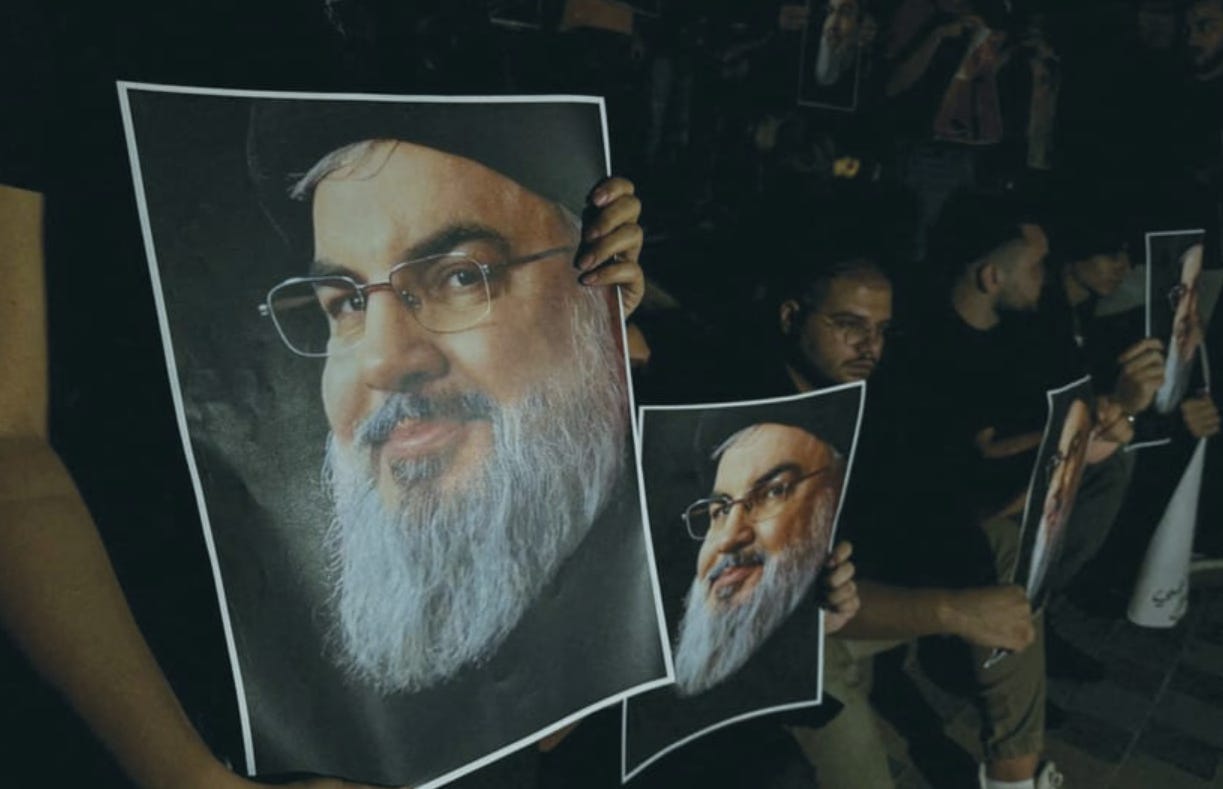
Nasrallah Made Assumptions About Israel - and it Cost Him His Life - Analysis—Written by Amir Bohbot for the Jerusalem Post—October 20, 2024
‘We Believe in What We are Doing’: IDF Commando Reservists Describe a Year of War—Written by Seth J. Frantzman for the Jerusalem Post—October 13, 2024
Does UNIFIL Actually Want Hezbollah Out of Southern Lebanon?—Written by Sarit Zehavi for the Alma Research and Education Center—October 15, 2024
UNIFIL’s Failure Means it Must Leave or Reform—Written by Yaakov Lappin for Jewish News Syndicate—October 14, 2024
How Israel Got Its Mojo Back—Written by Jonathan Schanzer for Commentary Magazine—November 2024
The ‘How’ Over the ‘What:’ Israel’s Dilemma Beyond Target Selection in Iran—Written by Janatan Sayeh for the Foundation for Defense of Democracies—October 18, 2024
How Israel’s Bulky Pager Fooled Hezbollah—Written by Maya Gebeily, James Pearson and David Gauthier-Villars for Reuters—October 15, 2024
'Tunnels Like in Vietnam': Hezbollah’s Secret War Machine Thrived Underneath IDF and UN Watch—Written by Yoav Ziton for Ynet News—October 14, 2024
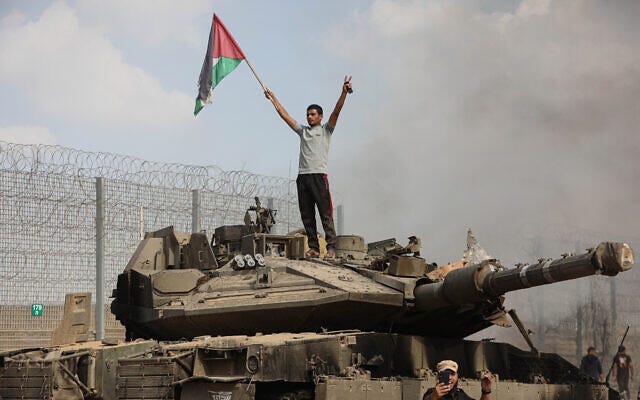
Reports: Hamas Delayed Oct. 7 Attack to Enlist Iran, Hezbollah; Plotted 9/11-Style Bombing—Written by Times of Israel Staff—October 13, 2024
IDF Strikes 490 Hezbollah Targets in Ground and Air Operations—Written by Seth D. Frantzman for the Foundation for Defense of Democracies Long War Journal—October 17, 2024
Israel’s Struggle with Hezbollah—A War Without End is now available in eBook and hardback format on Amazon and IngramSpark. This compelling narrative explores Hezbollah’s origins and cancerous growth, traces Israel’s response, and reveals Israel’s present readiness to meet Hezbollah’s challenge.
Cliff Sobin
Important Link—Alma Research and Education Center: Understanding the Security Challenges on Israel’s Northern Border



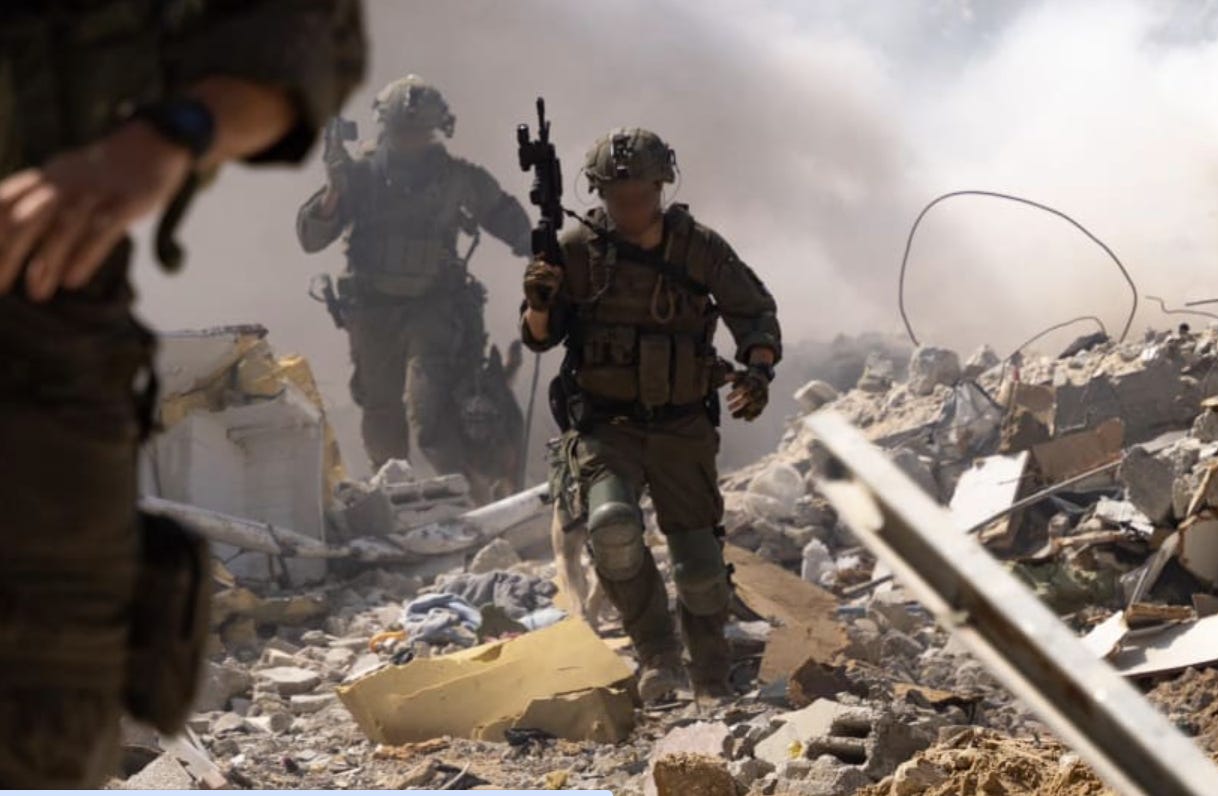
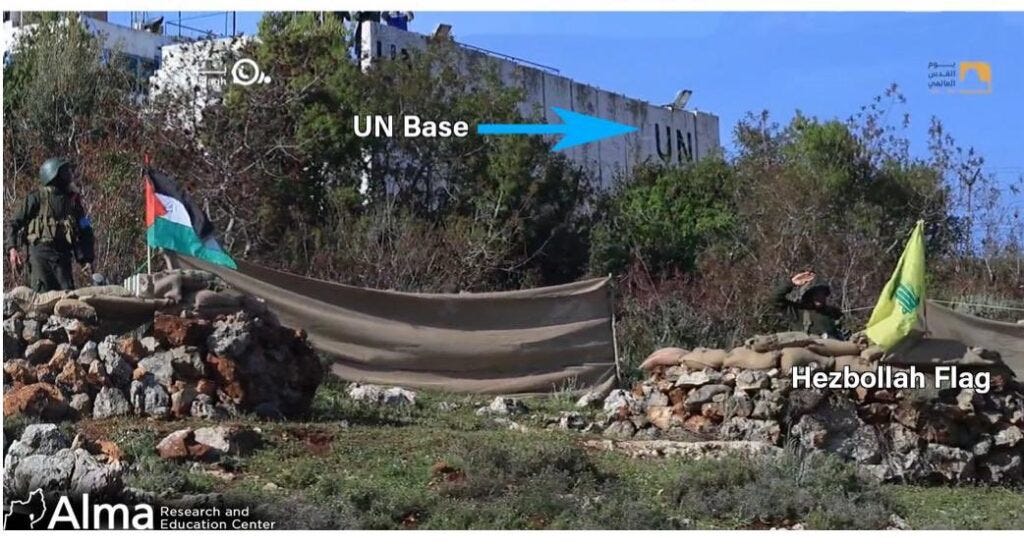
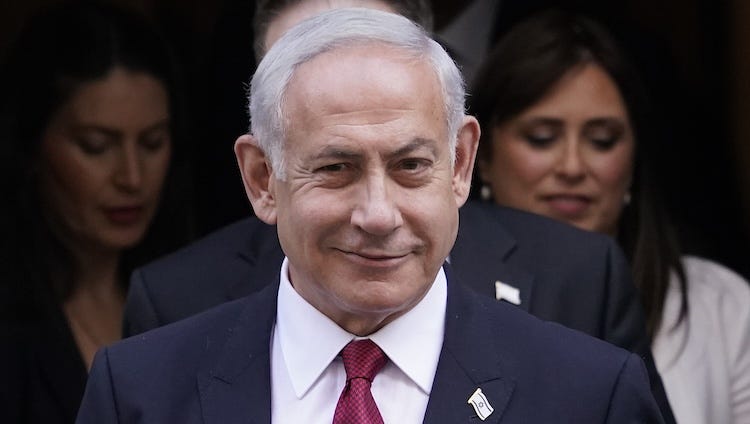
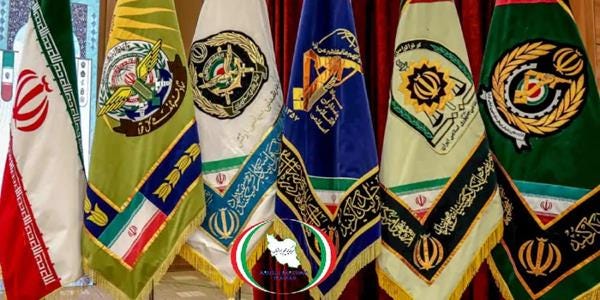

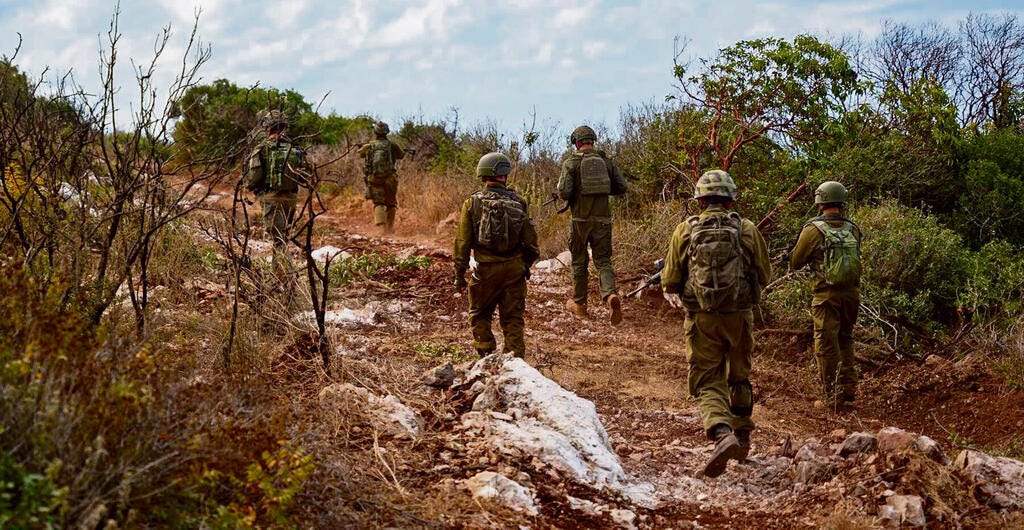
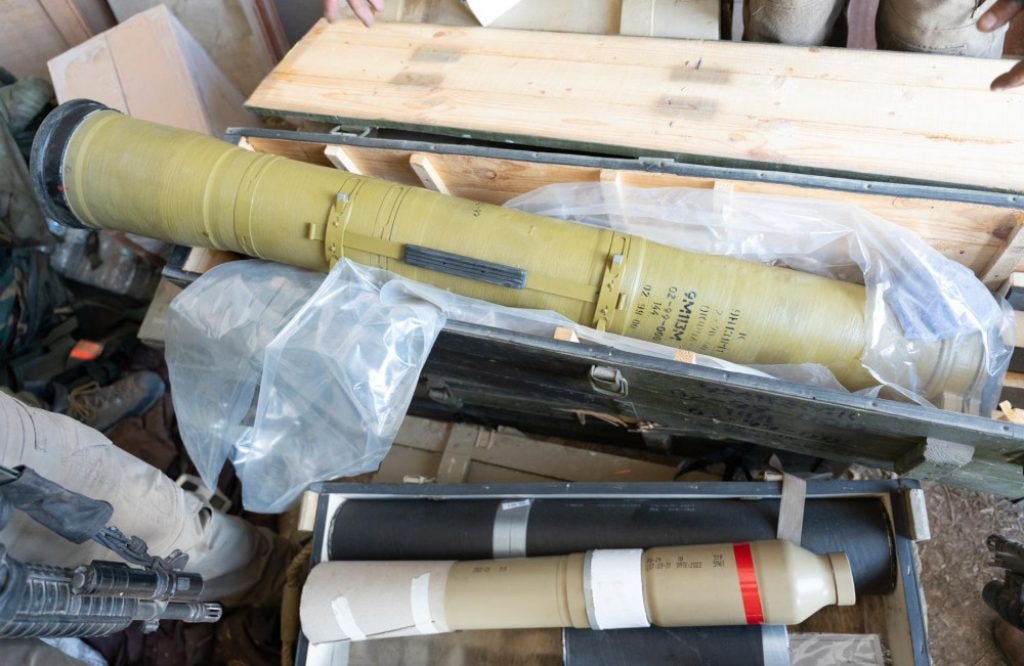

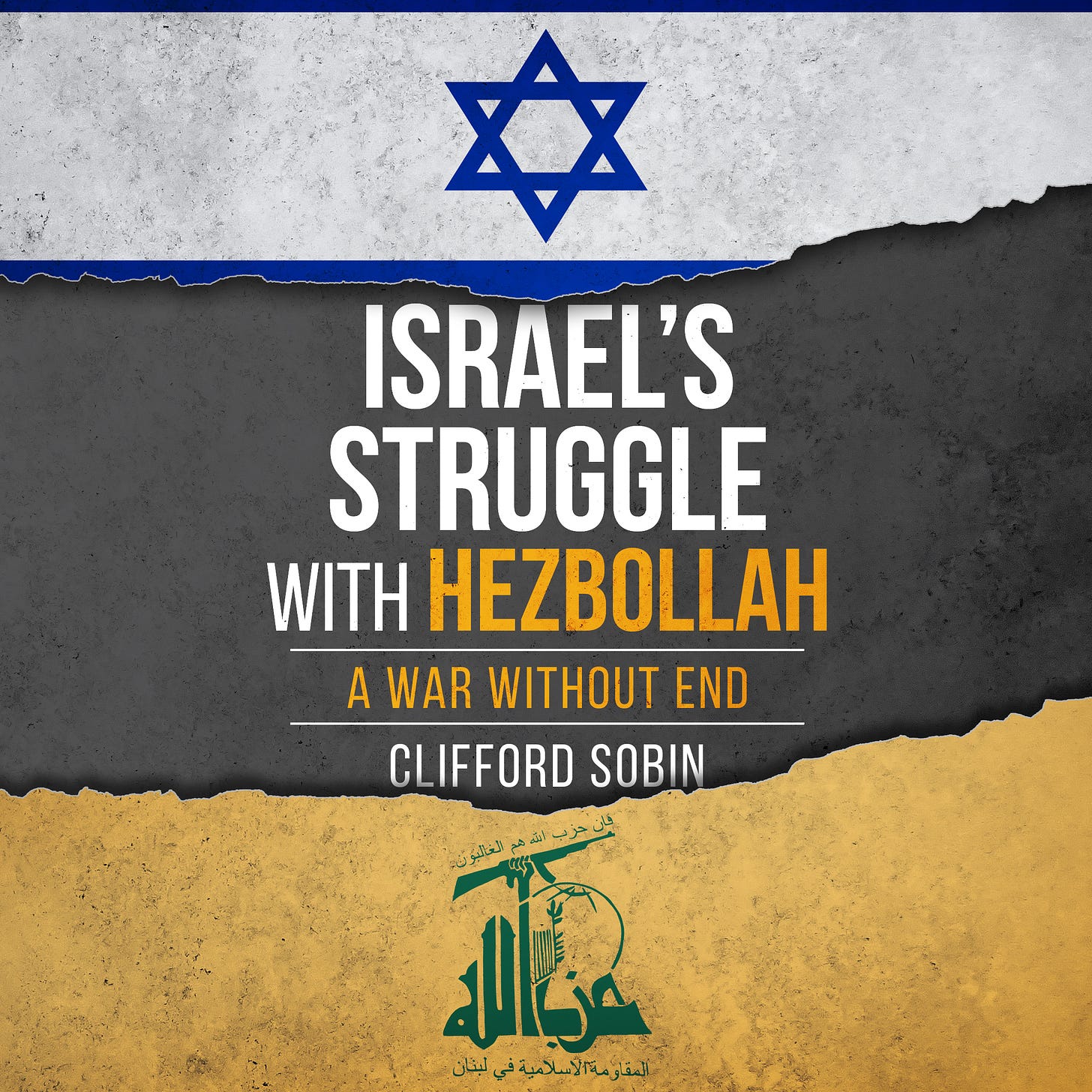
Thank you Rebekah and Sheri for your comments.
Seems like making a deal with Hamas is an impossible quest, for how do you bridge the gap when one side wants Hamas destroyed and the other side wants Israel destroyed and neither are prepared to compromise? Your suggested approach seems like the only one that has any chance of leading to the conditions for changing the outlook. And it means people have to choose their priorities -- which is more important: Hamas or the Gazan civilians?